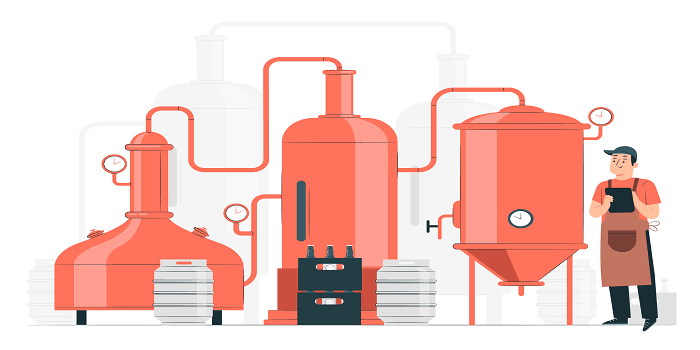Unlock Potential: Exploring Investment Opportunities in the Nifty Chemical Index
Introduction: In recent years, the Nifty Chemical Index has garnered significant attention among investors. Driven by the increasing demand for chemicals across multiple sectors, India’s chemical industry is thriving, making this index a promising opportunity for those looking to diversify their portfolio. In this blog, we will break down what the Nifty Chemical Index is, its importance, key players in the industry, and why this sector could be a solid investment choice.
What is the Nifty Chemical Index?
The Nifty Chemical Index is a specialized index on the NSE (National Stock Exchange) that tracks the performance of leading chemical companies in India. It includes a basket of companies representing various segments within the chemical industry, such as specialty chemicals, agrochemicals, petrochemicals, and industrial chemicals. This index serves as a barometer for the sector’s health, reflecting trends, growth potential, and market sentiment.
Importance of the Chemical Sector in India
India’s chemical industry is one of the largest globally and is essential for the country’s economic growth. Chemicals play a role in numerous industries, from agriculture and textiles to pharmaceuticals, FMCG, and automotive. With the government’s “Make in India” initiative and increasing global demand, the chemical sector has been able to expand its reach and become a preferred supplier for international markets. India is now the sixth-largest producer of chemicals in the world and continues to grow at a rapid pace.
Key Segments within the Nifty Chemical Index
The Nifty Chemical Index consists of various sub-sectors, each of which has distinct growth drivers and unique challenges. Here’s a closer look:
- Specialty Chemicals: Specialty chemicals have been in high demand due to their applications in high-growth sectors like personal care, food processing, and electronics. Major players in this sub-sector are seeing consistent growth due to the rise in demand for high-performance products.
- Agrochemicals: India’s agricultural sector relies heavily on agrochemicals, including fertilizers, pesticides, and crop protection products. The demand for agrochemicals is expected to rise with the growing population and need for food security. This is a resilient segment that performs well even in economic downturns.
- Petrochemicals: Petrochemicals form the backbone of many industries, supplying raw materials for everything from plastics to synthetic fibers. While this segment is influenced by crude oil prices, the ongoing modernization of refineries and a move towards sustainable alternatives are promising trends.
- Industrial Chemicals: Industrial chemicals are used in manufacturing processes across multiple sectors, including steel, automotive, and construction. As infrastructure development increases, so does the demand for these chemicals.
Major Players in the Nifty Chemical Index
Here are a few companies making waves in the Nifty Chemical Index:
- Aarti Industries Ltd.: A leading player in specialty chemicals, Aarti Industries has built a strong export base and has a diverse portfolio that caters to various industries.
- SRF Ltd.: Known for its strong presence in the chemicals and packaging industries, SRF Ltd. has seen substantial growth. Its focus on fluorochemicals makes it a key player in specialty chemicals.
- UPL Ltd.: UPL is a giant in the agrochemical sector, with a global footprint and a robust portfolio of crop protection solutions. It has consistently delivered strong performance and is a crucial part of the Nifty Chemical Index.
- PI Industries: Primarily an agrochemical company, PI Industries has a strong focus on R&D and sustainable solutions. Its diversified portfolio and consistent financial performance make it an attractive option for investors.
Growth Drivers of the Nifty Chemical Sector
Several factors contribute to the growth of the Nifty Chemical sector:
- Increasing Export Demand: The global shift away from Chinese suppliers, known as the “China Plus One” strategy, has led many countries to seek alternative suppliers. India has benefited greatly from this trend, with Indian companies emerging as reliable suppliers.
- Government Support: The Indian government has introduced various policies to support the chemical industry, including financial incentives and reduced regulations for specific chemicals.
- R&D and Innovation: Many chemical companies are investing heavily in R&D, leading to innovations in sustainable products, green chemistry, and bio-based chemicals. This not only adds to the growth potential but also positions these companies as leaders in a more sustainable future.
Why Consider Investing in the Nifty Chemical Index?
Investing in the Nifty Chemical Index can provide diversification to your portfolio, especially if you’re looking for exposure to a high-growth sector. Here’s why this could be a good investment choice:
- Strong Financial Performance: Companies in the Nifty Chemical Index have shown strong financial performance, with consistent revenue growth and profit margins.
- Global Market Demand: The global market for chemicals continues to expand, with applications across new-age sectors like EV batteries, semiconductors, and renewables.
- Resilience in Tough Economic Times: Many segments within the chemical industry, like agrochemicals, are relatively recession-proof, providing stability in volatile markets.
Risks to Consider
Like any investment, the Nifty Chemical Index does come with risks. Some of these include:
- Raw Material Price Volatility: Fluctuating prices of raw materials like crude oil can impact margins, especially for petrochemical companies.
- Environmental Regulations: As governments worldwide impose stricter environmental standards, companies may face additional compliance costs.
- Geopolitical Risks: Many chemical companies rely on exports, making them susceptible to global trade dynamics and geopolitical tensions.
Modern life would not be possible if it were not for chemicals, nor would modern natural gas production.
